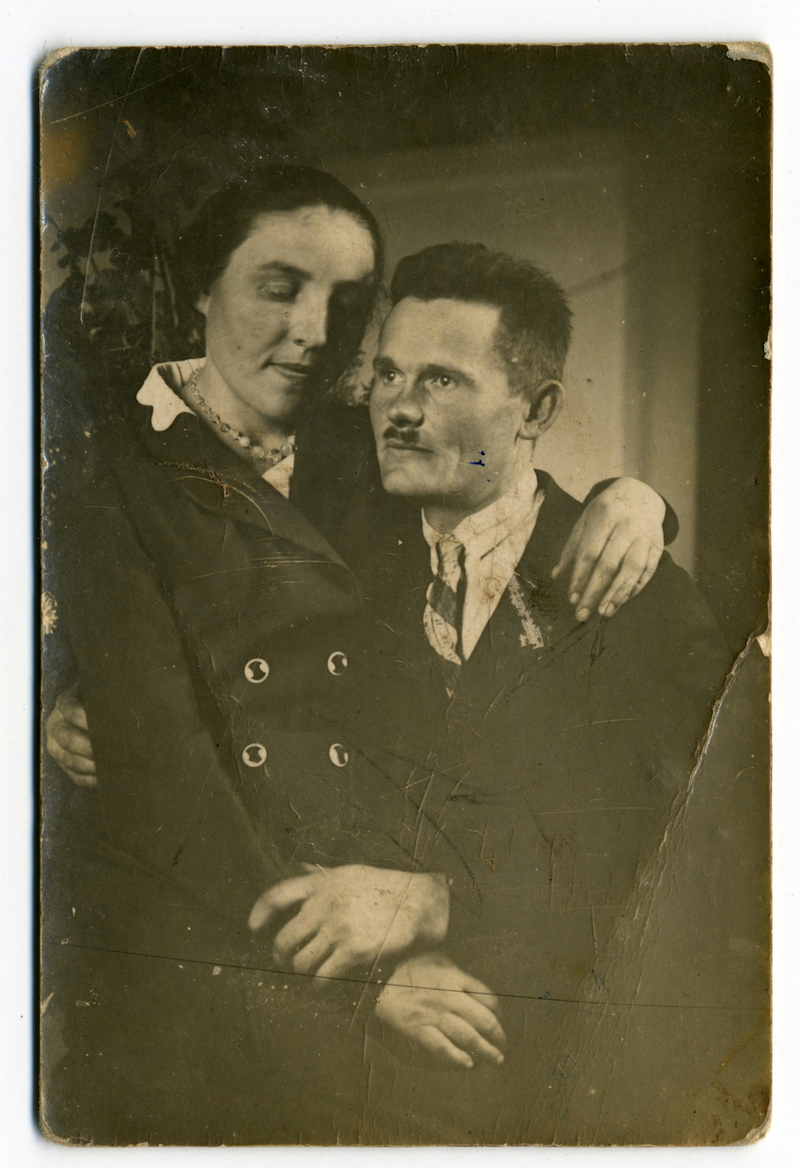Martyrdom cannot be planned. According to the Church, the sacrifice of martyrdom occurs when a person intends to live the Gospel and follow Christ, regardless of the circumstances, and perseveres unwaveringly in this resolve. Even when faced with the most difficult challenges, life-threatening events or the cruellest oppressor. Wiktoria and Józef Ulma’s family from Markowa village in Podkarpacie followed this way of life.
Like many other Polish families, they saw their lives change dramatically when the German and Soviet totalitarian regimes took over Poland in September 1939. What did not change was their willingness to stand up for their faith and their conviction that Christian love is for everyone, regardless of the times in which one lives – perhaps even more so when life’s choices become unimaginably difficult.
When humanity requires courage
From their point of view, the choice made by Wiktoria and Józef Ulma was obvious. When Saul Goldman asked for help for himself and his loved ones in the autumn of 1942, the Ulma family welcomed them into their home. What did they risk? In the grim reality of the German occupation, where any aid to Jews condemned to the Holocaust was punishable by death, they risked everything, including their lives. Despite this, the Ulmas offered refuge to eight frightened people threatened by death, providing them shelter for months.
For almost a year and a half, from the windows of a house in Markowa, those in hiding could observe the reality they fled. Germans going unpunished and Poles forced into submission. Terrified villagers struggling with the hopelessness of the occupation.
Why did the Ulmas choose to provide shelter for the frightened Jews? After all, they were not the only ones in their neighbourhood, nor in all of occupied Poland and Europe, facing such a decision. Thousands of individuals, families or communities did the same, in different circumstances, for different motives and on a smaller or larger scale. In the case of the Ulmas, we know they were guided by religious principles. They followed the Christian commandment of love literally, deriving their duty to help and shelter the suffering directly from the Gospel. Their decision may seem extremely difficult at first, but they believed in the logic of the Christian attitude towards fellow humans – a logic that places love above death and fear.
Gospel of the murdered
The religious inspiration of the Ulmas is not just a lofty-sounding slogan. It is a historically researched fact, based on numerous accounts and material evidence, such as the Biblical Acts belonging to Wiktoria and Józef, in which they highlighted the title of the subsection of the Gospel of Luke dedicated to the commandment of love and the parable of the Good Samaritan, as well as the ‘On Christian Duty’ passage from the Gospel of Mark.The Ulmas were aware of the consequences their act could bring. Both their neighbours and their immediate family cautioned them. Bur Józef allegedly told his cousin that he could not throw out the sheltered Jews because they were human beings, just like him.
His wife and children shared his Christian attitude. Wiktoria, ready to make the greatest sacrifices for her family, certainly drew hope and strength from prayer. According to sources, it was her refuge from worry and her strength in faith.
Naturally, the ‘Samaritans of Markowa’ understood the danger they were in. Everyone who knew them emphasised their intelligence and knowledge. Their advice and social prowess made them valuable members of the local elite. Aware of the surrounding reality and the ways of the occupation, they knew what could befall them. This gives hope that, in a Christian sense, they were trying to prepare themselves for what was to come.
The time for them to give their testimony came on the morning of 24 March 1944. Three of the Jews they were hiding were probably killed in their sleep; the rest were shot in front of the house. Then the German bullets killed Wiktoria and Józef. Wiktoria was in advanced pregnancy and went into labour during the execution. The last to die were their six children, who had to watch the whole tragedy. The last words they probably heard were the shouts of one of the Germans: ‘That’s how the Polish pigs who hide Jews die’. Local Poles were ordered to bury the executed. The Germans just plundered the property, ending the whole event with an alcoholic libation.
Martyrdom is testimony
The juxtaposition of the Christian attitude of the Ulmas with the godless madness of the German executioners is a clash of two choices: love that urges you to choose life and help those in need, and hate that chooses death and destruction, in this case, in the name of an insane ideology.
The attitude of the Ulmas is a testimony (Gr. martyria) to their Christian path, to their humanity. However, in the conditions of pervasive enslavement that reigned during the German occupation, this attitude can also be a symbol of true freedom, the right to make even the most difficult choices, regardless of overwhelming circumstances – in accordance with one’s conscience and professed values, in defiance of totalitarian orders and prohibitions. In this sense, just like Irena Sendlerowa, sister Matilda Getter and thousands of other known and unknown people who dared to help the persecuted, Wiktoria and Józef Ulma chose freedom. And as free people, they defended – and in some ways still defend – our humanity.
President of the Institute of National Remembrance
Karol Nawrocki Ph.D.
The article was published on the "Wszystko co Najwazniejsze" website
